Playing in Band: Ford Motor Company Employee Bands
Travel, radio fame, snazzy uniforms, and safety rallies. All of this and more were part of life for employee bands at Ford Motor Company.
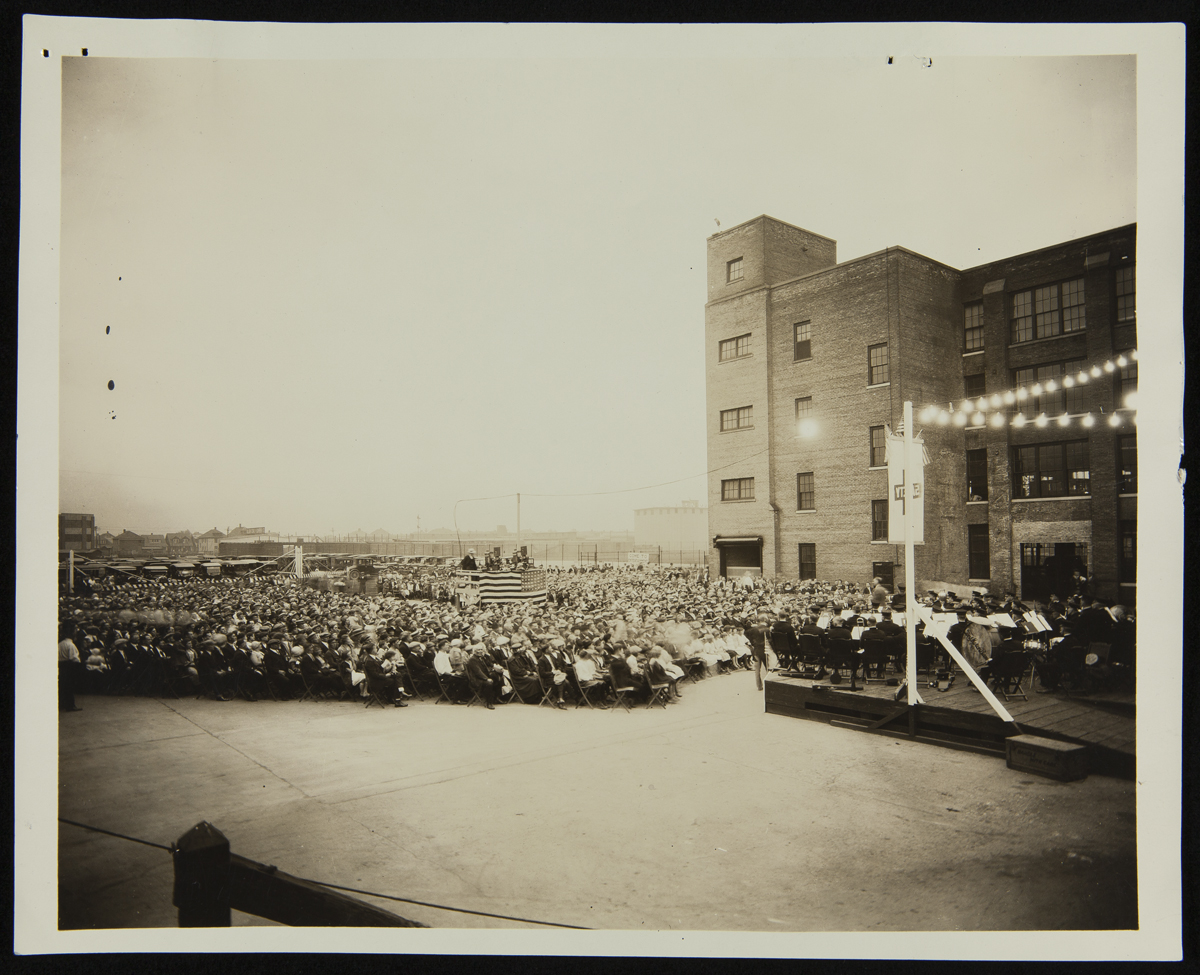
Worker Safety Rally at Lincoln Motor Company Plant, Detroit, Michigan, 1924. / THF261634
The company sponsored a number of employee bands, often hiring musicians into very flexible jobs so they could devote as much time as possible to their music. They played at company events; fairs; on Ford’s radio station, WWI; at competitions; and even traveled on tour. Each band had its own style of music, uniforms, and repertoire. Let’s take a look at some of the bands we have information on in the Ford Motor Company papers which are now part of The Henry Ford’s Benson Ford Research Center archives.
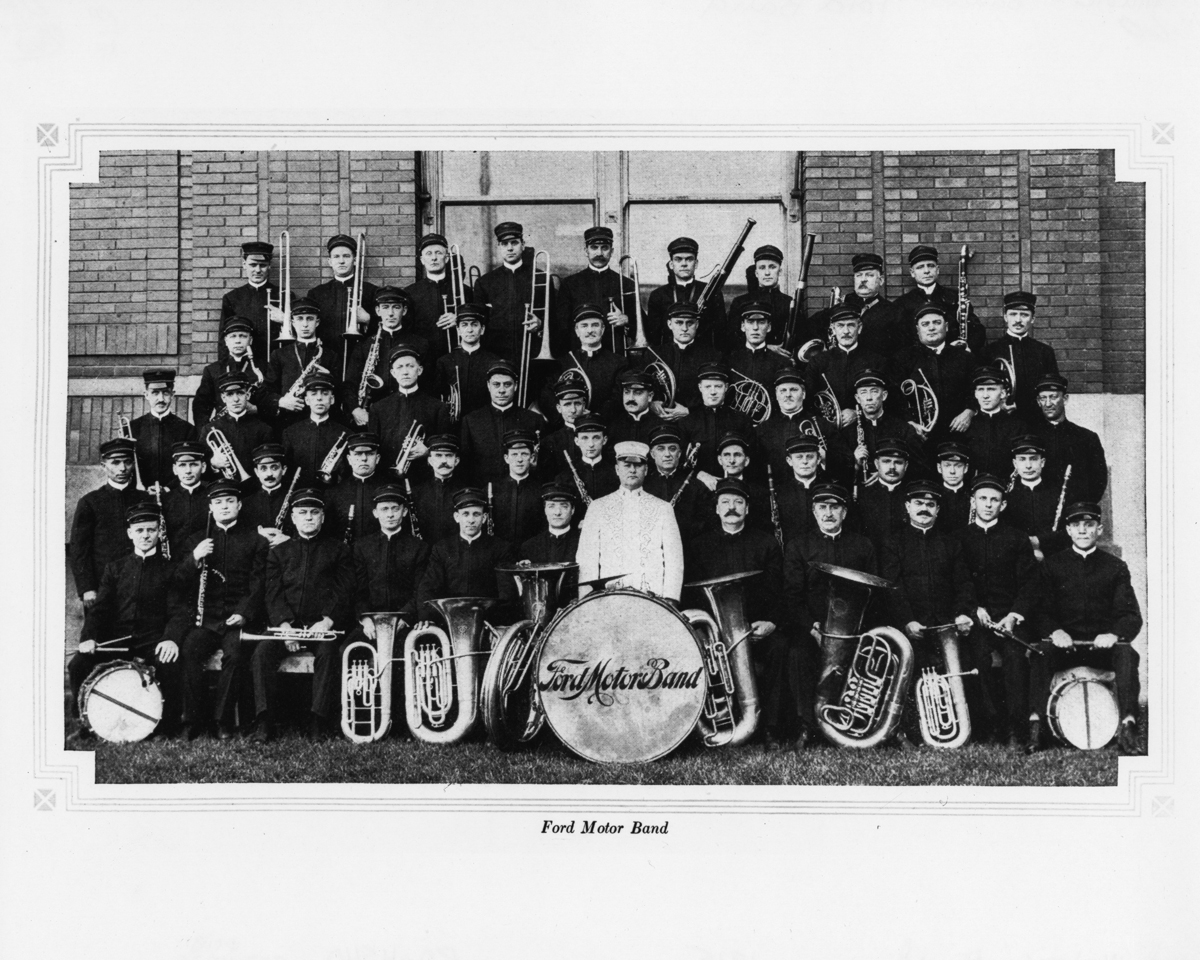
Ford Motor Band. / THF67917
The Ford Band was a marching band formed in the 1910s. They gave their first concert in 1912 at the Administration Building to an audience of 348 and it was all riches and fame from there — well maybe just fame. Led by Harry Philip, the all-employee band averaged between 40-50 musicians. In 1916, they accompanied the East Michigan Pikers on a five-day tour from Detroit to Mackinac Island to promote good roads, travelling in 10 Ford touring cars and playing 21 times a day. They played many company events, gave regular concerts for Ford employees and the public at the Arcadia Auditorium, were a staple at Ford safety rallies, and were often showcased on Ford’s WWI radio station.
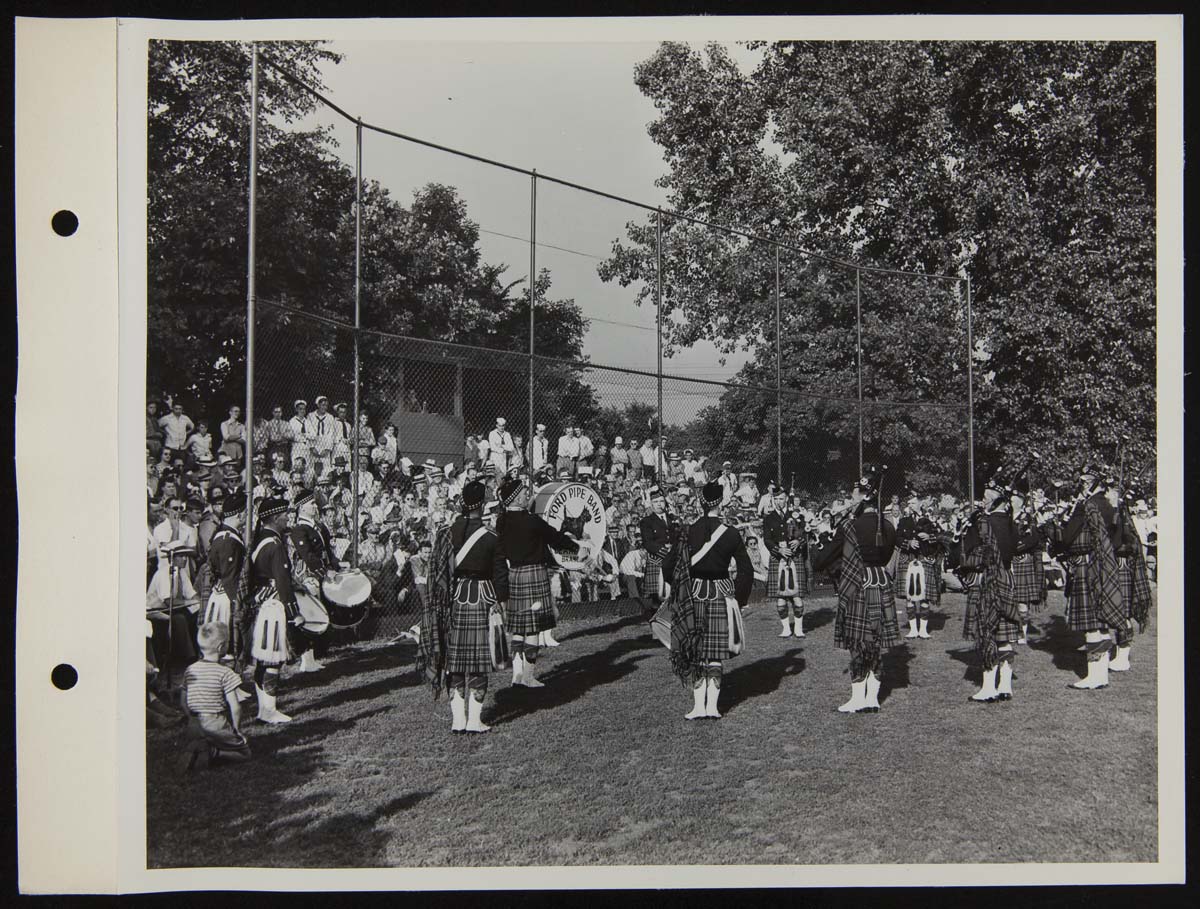
Ford Pipe Band at Ford All-Stars vs. Great Lakes Navy Baseball Game, July 1944 / THF272062
The Ford Pipe Band was formed in 1932 when Alexander Adams, the drum major (who was Edsel Ford’s bodyguard), began recruiting musicians to come work at Ford. The Pipe Major, Hector McInnes, bass drummer, William Riddock, and pipers, James Cullen and Donald McPhee, all worked in Plant Protection, with many of the other members working in departments across the company. Ford sponsored the band and paid for all transportation and lodging, but the band had to pay for their own uniforms. Alec Bryce, one of the drummers, recalled that the band specially ordered their uniforms from Scotland and had them shipped to Ontario, smuggling the uniforms into the U.S. piece by piece to avoid the extra customs fees. The band played at Ford Merit Club meetings, local parades, Scottish games, and other Ford and Lincoln-Mercury events and won both the American and All-Canadian piping championships in 1939.
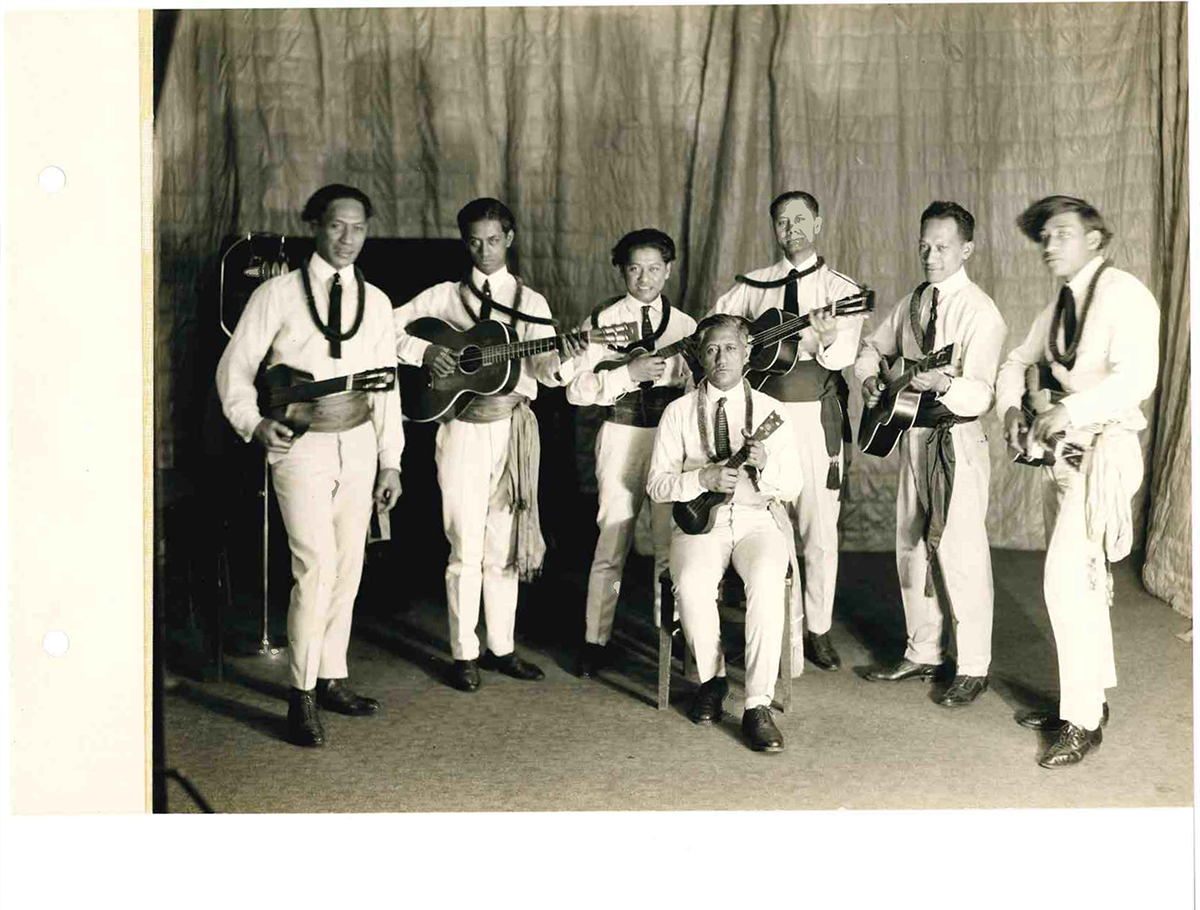
Ford Hawaiians, 1923. Acc.1660 box 146. / Image by Kathy Makas
The Ford Hawaiian Quintet (also known as the Ford Hawaiians) was a ukelele band led by Henry Kailimai. After hearing the band at the 1915 Panama–Pacific International Exposition in San Franscico, Henry Ford signed them up to travel to Detroit for a series of concerts and then a tour of the East Coast.
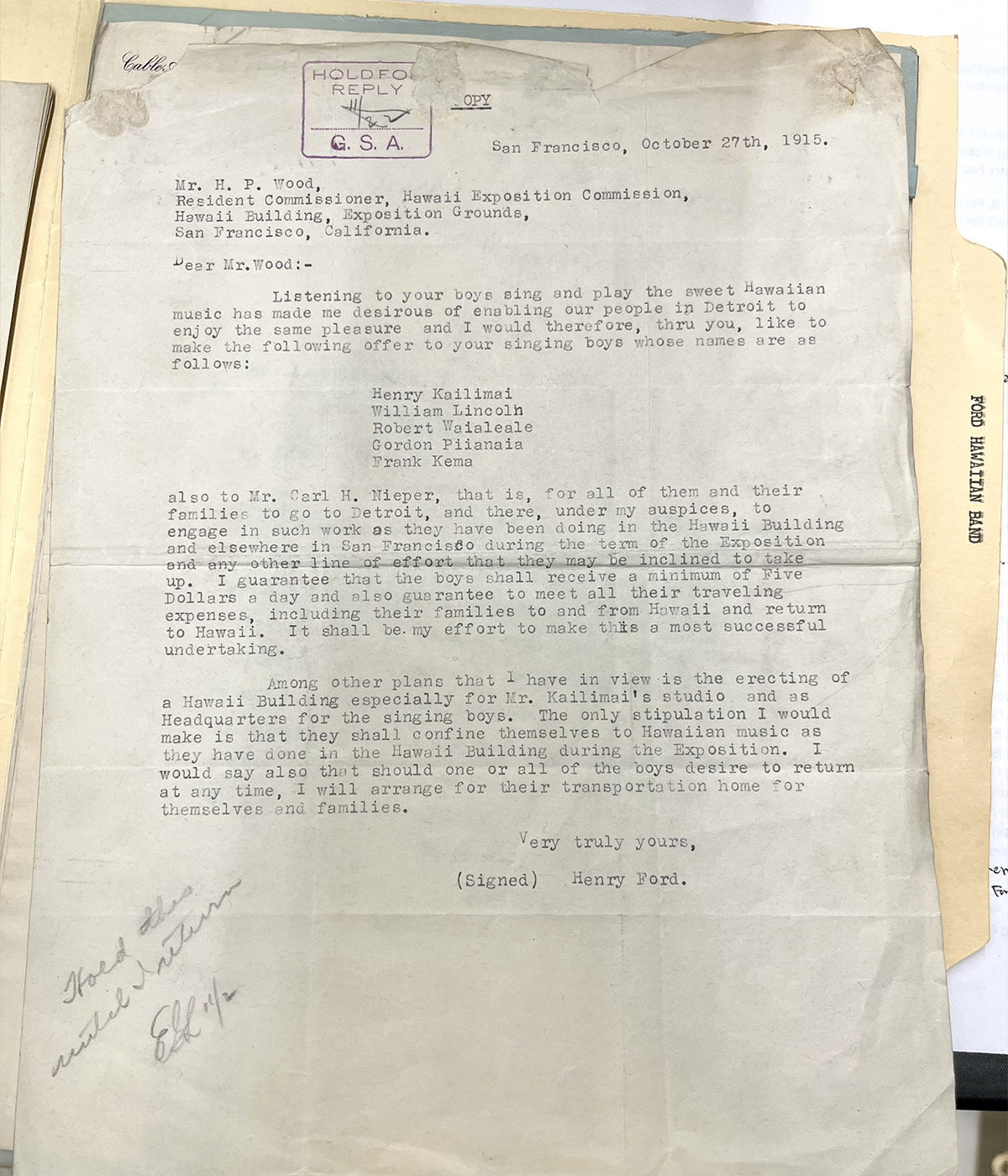
Ford Hawaiian Band. Acc. 62 box 12 / Image by Kathy Makas
Kailimai and the band returned to Detroit with their families, completing a two-year course at the Ford Service School before going to work for the company. After a hiatus in 1917-1918 when several members served in WWI, they continued into the 1920s, even becoming recording artists for one of Thomas Edison’s phonograph companies. The band was up for hire all over the Detroit area playing at concert halls, country clubs, lodges, churches and private events – they even gave ukelele lessons. Some of their hits included “Aloha Oe,” “Moani Ke Ala,” “Lei Poni Moi,” and “Ko Maka Palupalu.” You can hear some of these recordings at the UCSB Cylinder Audio Archive.
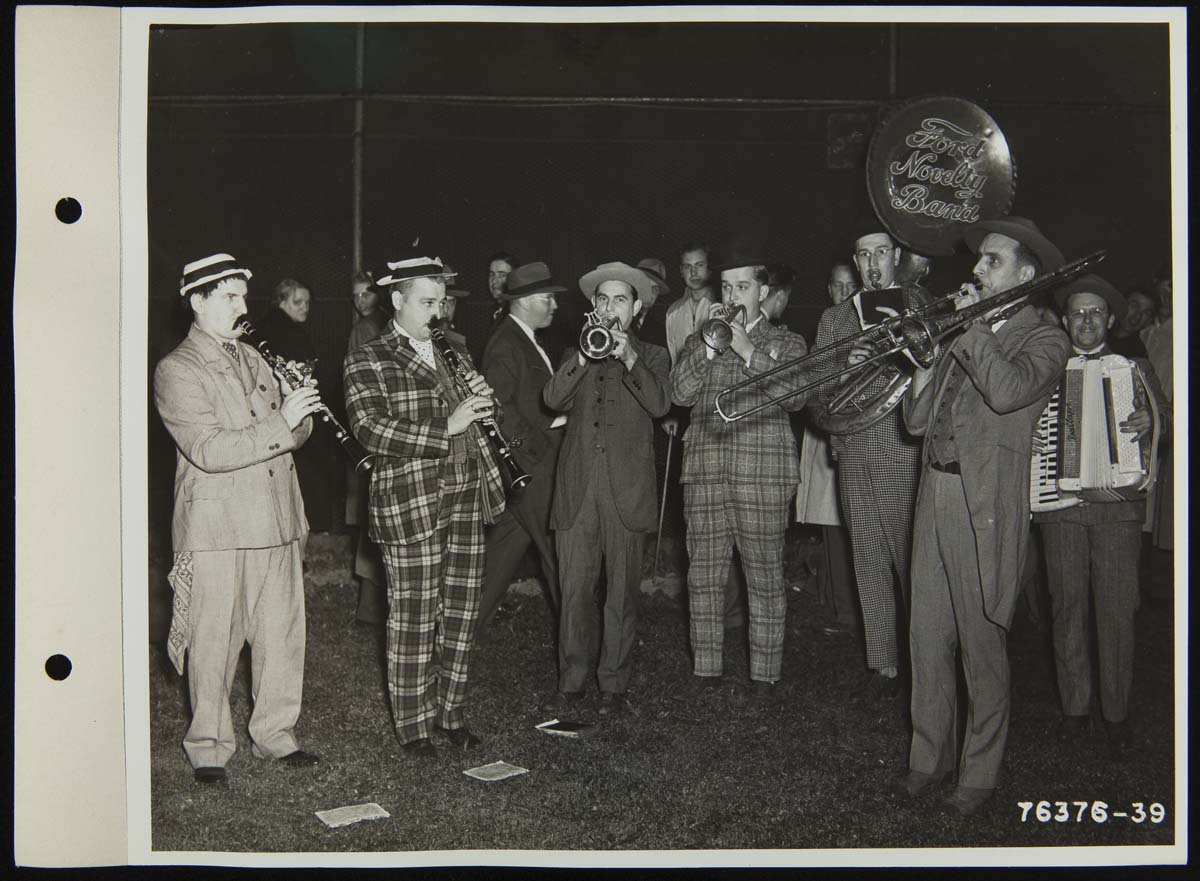
Ford Novelty Band Playing at Ford Baseball Team Game, 1941 / THF271722
The Ford Novelty Band added a comic touch to Ford events, playing at company ball games throughout the 1940s. They played at every game of the 1947 Ford softball playoffs at Levagood Park in Dearborn adding to the value of the $0.25 ticket price fans paid for each game.

Old Timer's Band at B-24 Radio Station Broadcast Studio, Willow Run Bomber Plant, 1944 / THF93762
In addition to the bands we’ve looked at, there were many other employee bands at Ford, including: Ford Trade School German Band, Ford Ramblers, Ford Rube Band, Ford String Ensemble, Ford Glass House Quintet, Ford Motor Company Clarinet Quartet, and Ford Motor Company Saxophone Band. There were also company sponsored bands that weren’t made up of employees like the Ford Orchestra which played on the Ford Sunday Hour and Ford Summer Hour radio programs.
If you have questions about Ford bands, or any other topic in our archive, please email us at research.center@thehenryford.org.
Kathy Makas is a reference archivist at The Henry Ford.


Facebook Comments